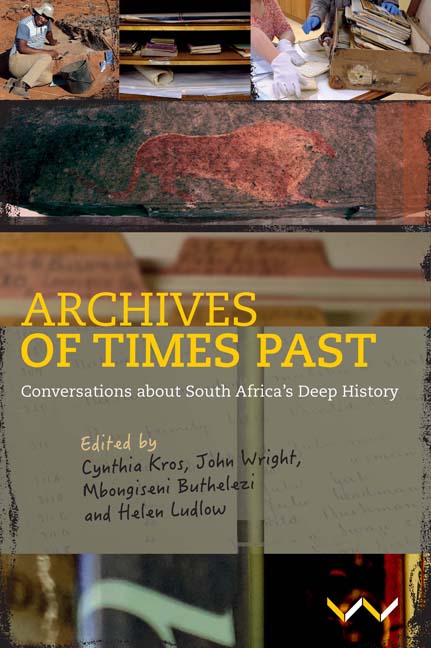Book contents
- Frontmatter
- Contents
- List Of Illustrations
- Acknowledgements
- Editorial Note
- Map
- PART I FIRST THOUGHTS ABOUT THE ARCHIVE
- PART II COMMENTARIES AND CONVERSATIONS
- PART III BECOMING EXPLORERS
- PART IV ENGAGING WITH ARCHAEOLOGY AND ROCK ART
- PART V CONFLICTING OPINIONS
- PART VI FURTHER THOUGHTS
- Glossary
- Contributors
- Index
Chapter 18 - Mapungubwe Imagined
Published online by Cambridge University Press: 26 May 2022
- Frontmatter
- Contents
- List Of Illustrations
- Acknowledgements
- Editorial Note
- Map
- PART I FIRST THOUGHTS ABOUT THE ARCHIVE
- PART II COMMENTARIES AND CONVERSATIONS
- PART III BECOMING EXPLORERS
- PART IV ENGAGING WITH ARCHAEOLOGY AND ROCK ART
- PART V CONFLICTING OPINIONS
- PART VI FURTHER THOUGHTS
- Glossary
- Contributors
- Index
Summary
A SACRED HILL, A HISTORIC SITE
Mapungubwe is a distinctive flat-topped hill in the dry bushveld of Limpopo Province, situated near the confluence of the Limpopo and Shashe rivers. This hill has very steep sides, and there are only four ways to the top, all of them involving scrambles up narrow gullies. Some people might see the hill as simply one feature of a generally attractive landscape. Others find it impressive in itself, and are excited by the fact that from the top you can see three countries at once: South Africa, Zimbabwe and Botswana. Many people who live in the area see the hill as a sacred site. Their ancestors probably saw it in the same way for many centuries before colonial times. Since the 1930s, the hill has been regarded by archaeologists and some political leaders as an important historical site. Yet only in the last 20 years has it become more widely known. Today, a number of politicians, scholars and heritage practitioners know it as the place where, more than 700 years ago, the leaders of the first large state in southern Africa had their capital. For more and more people, it has become known as an important site in the nation's history.
Mapungubwe is far from major cities and, until the 1990s, only the local people and a handful of archaeologists knew about it. Although archaeologists carried out excavations at the site from the 1930s onward, in apartheid times the large number of artefacts that they found were mostly hidden away from public view, stored at the University of Pretoria. The story of Mapungubwe did not become more widely known until after the collapse of apartheid.
An important figure in bringing the site to public knowledge was former president Thabo Mbeki. In 2002, he established the Order of Mapungubwe as the name of a prestigious award given to civilians who have done outstanding work for the people of South Africa. The name was later taken by an influential research organisation in Johannesburg, the Mapungubwe Institute for Strategic Reflection (MISTRA). The fact that Mapungubwe lies in a beautiful area at the confluence of two rivers and near the border of three countries, together with the fact that it has a fascinating history, meant that it had great potential as a tourist and heritage destination.
- Type
- Chapter
- Information
- Archives of Times PastConversations about South Africa's Deep History, pp. 240 - 251Publisher: Wits University PressPrint publication year: 2022



